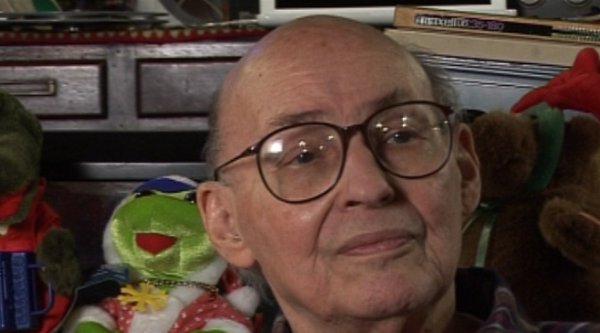NEXT STORY

The great benefit of having a co-director
RELATED STORIES

NEXT STORY

The great benefit of having a co-director
RELATED STORIES


|
Views | Duration | |
|---|---|---|---|
| 41. The frustration of teaching calculus at MIT | 1878 | 01:54 | |
| 42. Publishing Steps Toward Artificial Intelligence | 1046 | 01:39 | |
| 43. Switching from teaching math to artificial intelligence | 1097 | 00:32 | |
| 44. The beauty of the Lisp language | 1 | 5258 | 02:05 |
| 45. The beginning of the artificial intelligence community | 1 | 1150 | 01:16 |
| 46. The fathers of Artificial Intelligence | 2 | 1257 | 02:08 |
| 47. My covert dating tactics | 1 | 1525 | 01:46 |
| 48. How things got done at the AI lab | 1154 | 00:57 | |
| 49. Setting up the AI lab with John McCarthy | 1209 | 02:00 | |
| 50. The great benefit of having a co-director | 946 | 02:21 |


One feature of… that goes through this, my later career, was that I never felt I was working very hard except on mathematics or something, and, for example, being director of this laboratory seemed almost effortless because I always had a co-director. So, actually John McCarthy and I started this laboratory mostly because... I was hanging around in... in the very small laboratory of Warren McCulloch who was a... a great pioneer in cybernetics and things like that. And McCarthy, who was a classmate more or less of mine at graduate school, had been at Dartmouth and I forget why, but for some reason he left Dartmouth and came to MIT and we started the Artificial Intelligence laboratory together.
In fact, the way it happened is we were talking about needing more students to work on different things and we ran into Jerry Wiesner who was... I think he had just become president of MIT but I’m not sure... right now and mentioned that we needed some support and he said, oh, talk to so-and-so. And that person gave us access to the computer and someone else gave us a room and all of these things happened. But the main thing is that sometimes I would do something or ask for something; sometimes McCarthy would and we were actually co-directors – there was no-one in charge.
Marvin Minsky (1927-2016) was one of the pioneers of the field of Artificial Intelligence, founding the MIT AI lab in 1970. He also made many contributions to the fields of mathematics, cognitive psychology, robotics, optics and computational linguistics. Since the 1950s, he had been attempting to define and explain human cognition, the ideas of which can be found in his two books, The Emotion Machine and The Society of Mind. His many inventions include the first confocal scanning microscope, the first neural network simulator (SNARC) and the first LOGO 'turtle'.
Title: Setting up the AI lab with John McCarthy
Listeners: Christopher Sykes
Christopher Sykes is a London-based television producer and director who has made a number of documentary films for BBC TV, Channel 4 and PBS.
Tags: Dartmouth College, MIT, Artificial Intelligence Laboratory, John McCarthy, Warren McCulloch, Jeey Wiesner
Duration: 2 minutes, 1 second
Date story recorded: 29-31 Jan 2011
Date story went live: 09 May 2011